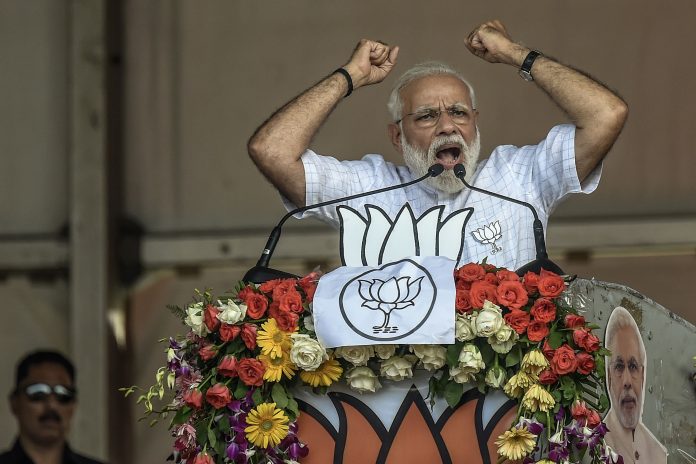Voting concluded in India, with projections showing the Bharatiya Janata Party (BJP) will win a large majority in parliament.
Voters cast their ballots on Saturday in 57 parliamentary constituencies in the seventh phase of polling. On Tuesday, votes for all 543 elected seats in the lower house of parliament will be counted. The results will be announced the same day.
The election would mark a test of the popularity of 73-year-old Prime Minister Narendra Modi, whose image as a strong leader and champion of Hindu nationalism strengthened through a series of measures to improve the welfare of tens of millions of poor people during his decade in power.
Before the elections, the BJP was expected to score an easy victory. The party had set its sights on an overwhelming majority with 400 seats. According to exit polls aired by several TV channels, the party, along with its allies, now might win 350 or more seats, far exceeding the 272 seats needed for a simple majority. Such an outcome would allow Modi to enter a third consecutive term.
Observers expected the opposition alliance of more than two dozen parties to challenge Modi for a huge parliamentary majority for his party. Despite, exit polls predicted he would fail to do so and showed the alliance trailing with about 150 seats. But in a vast and diverse country, exit polls have not always been reliable.
After the polls closed on Saturday, Prime Minister thanked voters and expressed confidence in the government’s re-election.
Opposition
The opposition’s hopes for gains centre on growing discontent over the high unemployment rate faced by the country’s vast youth and rising prices. Congress Party leader, Rahul Gandhi, the face of the opposition campaign, has channelled his campaign on the need to create jobs and the growing wealth disparity in the country.
He alleged the government’s policies favoured the rich at the expense of the poor. His party promised cash payments to poor women and apprenticeship guarantees for college graduates. It has also raised concerns about the rollback of democracy under Modi.
The opposition faces difficulties in making significant gains. The Congress party, for instance, found itself marginalised over the past decade amid the BJP’s emergence as a formidable political force under Modi – it has just 52 seats in Parliament. It will have to succeed in the populous northern states, where the BJP has strong roots and where its Hindu nationalist programme resonates most.
The BJP, for its part, requires to expand its influence in some southern states where it has little presence.
The election campaign hailed as one of the most controversial in India. Regardless, the winning party will form the next government by mid-June, before the current parliament’s term expires.
